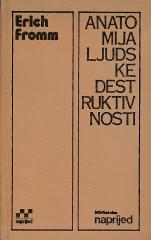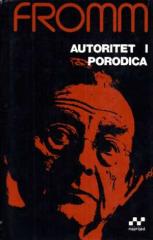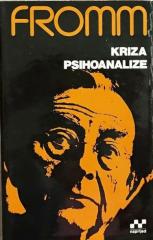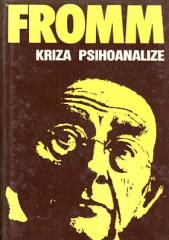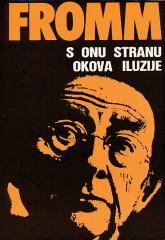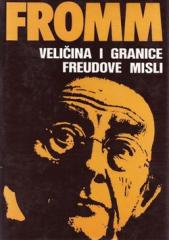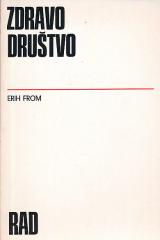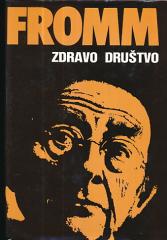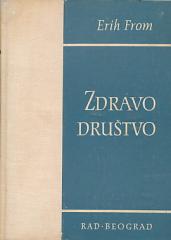Erich Fromm
Erich Fromm (1900–1980) war ein deutsch-amerikanischer Sozialpsychologe, Psychoanalytiker, Philosoph und humanistischer Denker. Er wurde in Frankfurt als Kind einer jüdischen Familie geboren und studierte Soziologie, Psychologie und Philosophie in Heidelberg. Er war der Frankfurter Schule der Kritischen Theorie verbunden und engagierte sich intensiv für die Verbindung der Psychoanalyse mit der Sozialtheorie und der humanistischen Ethik.
Fromm glaubte, dass die menschliche Psychologie nicht ohne den Kontext der Gesellschaft verstanden werden könne, in der eine Person lebt. Sein berühmtestes Werk „Flucht aus der Freiheit“ (1941) analysiert, wie sich Einzelpersonen in der modernen Gesellschaft autoritären Ideologien zugewandt haben, um der Last der persönlichen Freiheit zu entgehen. In seinen Werken „Die Kunst der Liebe“, „Gesunde Gesellschaft“ und „Haben oder Sein“ vertritt er die Ideen echter Liebe, individueller Reife und ethischen Humanismus.
Für Fromm bestand das Ideal in einer gesellschaftlichen Transformation, die die Entwicklung des Menschen als freies, kreatives und verantwortungsbewusstes Wesen ermöglicht. Er war auch im politischen Leben aktiv und setzte sich für Frieden, Besonnenheit und demokratischen Sozialismus ein. Nach der Machtübernahme der Nationalsozialisten emigrierte er in die USA, wo er seine akademische und therapeutische Karriere fortsetzte.
Er starb 1980 in der Schweiz und hinterließ tiefe Spuren in der humanistischen Psychologie und Sozialphilosophie.
Titel im Angebot
Anatomija ljudske destruktivnosti
In einer Welt, in der die Gewalt in ihren verschiedenen Formen ständig zunimmt, behandelt Erich Fromm dieses Problem in einem seiner bedeutendsten Bücher auf äußerst aufschlussreiche Weise.
Autoritet i porodica
In „Autorität und Familie“ analysiert Erich Fromm den Wandel von Autorität und Familie in der modernen Gesellschaft. Das Vorwort wurde von Gvozden Flego geschrieben, und das Buch enthält auch die Studie „Revolutionärer Charakter“.
Kriza psihoanalize - Analitička socijalna psihologija i društvena teorija
Fromm entwickelte sich unter dem Einfluss von Marx, Freud und dem Frankfurter Kreis zum Kritiker der zeitgenössischen Gesellschaft. Er zeichnete sich als origineller kritischer Interpret von Freuds Konzeptionen aus, die seine zweite grundlegende Inspirati
Kriza psihoanalize - Analitička socijalna psihologija i društvena teorija
In dem Buch übt Fromm scharfe Kritik an der zeitgenössischen Psychoanalyse. Er glaubt, dass sich die Psychoanalyse von Freuds ursprünglicher revolutionärer Vision entfernt und sich in ein technisches, oft steriles System verwandelt hat, das tiefere mensch
S onu stranu okova iluzije: Moj susret s Marxom i Freudom
In dem autobiografisch-philosophischen Werk „Jenseits der Ketten der Illusion“ schildert Erich Fromm seine eigene geistige Entwicklung durch die Auseinandersetzung mit den Ideen von Karl Marx und Sigmund Freud.
Veličina i granice Freudove misli
Zdravo društvo
Erich Fromm untersucht, was eine Gesellschaft psychisch gesund und was sie krank macht. Das Buch stellt den Höhepunkt von Fromms Sozial- und Politikphilosophie dar, in der er einen sogenannten humanen, demokratischen Sozialismus befürwortet.
Zdravo društvo
In dem Buch „Die gesunde Gesellschaft“ geht Erich Fromm der Frage nach, was eine Gesellschaft psychisch gesund und was sie krank macht. Das Buch stellt die Krönung von Fromms Sozial- und Politikphilosophie dar, in der er das sogenannte bevorzugt. humaner,
Zdravo društvo
In dem Buch „Gesunde Gesellschaft“ versuchte Fromm zu zeigen, dass das Leben in einer Demokratie des XX. Jahrhundert stellt eine andere Art der Flucht aus der Freiheit dar. Die Analyse dieser Flucht, bei der die Entfremdung das zentrale Konzept ist, bilde
